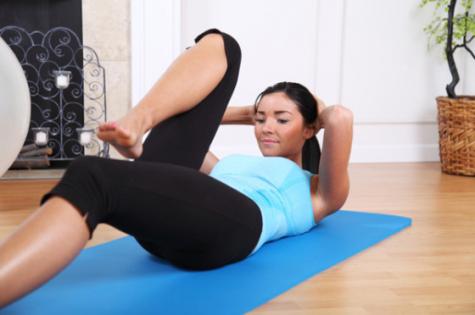Let’s tackle one of the most common new year’s resolutions head on. Exercise.
Why exercise?
How we look motivates many people into activity. Yet overall health and long-term prospects for quality of life are also very good reasons to make regular physical activity part of our lives. Doing so makes an enormous difference to the quality and length of your life, a fact underscored by hundreds of studies.
In a nutshell, exercise does the following:
- Lessens the likelihood of getting heart disease, the No 1 killer of Australians.
- Lowers blood pressure.
- Helps prevent diabetes by paring off excess weight, modestly lowering blood sugar levels, and boosting sensitivity to insulin so that your body needs less of it. If you have diabetes, exercise helps control blood sugar.
- Reduces risk for developing cancers of the colon, breast, endometrium (uterine lining), and prostate. By helping you attain a healthy weight, exercise also lessens your risk for other cancers in which obesity is a factor.
- Helps strengthen bones, which reach peak density and strength during the first three decades of life. Over time, bones become lacier and weaker as density slips away. When combined with calcium, vitamin D, and bone-saving medications if necessary, weight-bearing exercise like walking, running, and strength training helps ward off bone loss. And balance-enhancing activities, including tai chi and yoga, help prevent falls that may end in fractures.
- Helps protect joints by easing swelling, pain, and fatigue. Activities that boost flexibility, such as stretching, yoga, and tai chi, extend range of motion.
- May limit and even reverse knee problems by helping to control weight—a big deal, since every added kilogram multiplies knee stress.
- Lifts spirits by releasing mood-elevating hormones, relieving stress, and promoting a sense of well-being. In some studies, exercising regularly has helped ease mild to moderate depression as effectively as medications; combining exercise with medications, therapy and social engagement is even better.
- May boost your ability to fend off infection, as shown in three randomised trials of women who walked briskly 35 to 45 minutes a day, five days a week for 12 to 15 weeks, and experienced half the cold symptoms of a sedentary group. Additional research shows exercise prompts a modest, short-term upswing in natural killer cells and white blood cells, which helps reduce infection.
Adds years to your life
In a long-running study in the United States, moderate activity tacked on 1.3 years of life for men and 1.5 years of life for women versus low activity. Raising the bar to high activity added 3.7 years for men and 3.5 years for women.
Even current couch potatoes can’t wiggle out of this. A separate long-term study of 10,000 men ages 20 to 82, who were examined and given two fitness tests at five-year intervals, found those who made the effort to shift status from unfit to fit cut their likelihood of dying by 44% compared with those who stayed sedentary.
How much time should you spend on exercise?
Some days, it’s hard to find a moment to think, let alone squeeze in a visit to the gym or even a quick walk.
Fortunately, just 30 minutes of moderately intense activity five days a week delivers solid health benefits. Stringing together chunks of daily exercise in 10-to-15 minute blocks can help you reach these goals.
For most people, exceeding the minimum weekly time tacks on health benefits. Vigorous workouts can enhance health further.
Want a mix? Try walking 30 minutes on two days and jogging vigorously for 20 minutes on two days. If you lead a busy life, cranking it up this way can help you get the exercise you need to stay fit and healthy.
It helps your mind too
The best way to stay sharp mentally is to stay active! Regular exercise helps, partly by preventing health problems that harm the brain.
Even mild activity boosts brain blood flow - and, in turn, vital oxygenation that keeps neural networks humming - according to a small 2008 study of healthy young men who underwent scans of the forebrain while cycling at increasing intensity.
A 2008 Cochrane review of 11 randomised trials compared aerobic exercise with other activities or no activity in people aged 55 and older. Eight of the trials reported enhanced cardiovascular fitness and cognitive capacity in those who performed aerobic activities. Previous studies have shown less age-related shrinkage of brain tissue in physically fit participants ages 55 to 79 and sharper executive control functions, such as attention, organisation,and planning, among exercisers ages 55 to 80.
Now is the time!
A new year is the perfect time to start a new exercise program. If you are unfit and/or overweight, please see your GP first to receive guidance on what you can and can't attempt. And remember, it's 'baby steps'.
You will start to feel better within one month; you'll notice a difference in three months; by this time next year, you'll feel like a new person and wonder how you ever did without it!
Good luck.



















__small.png)










